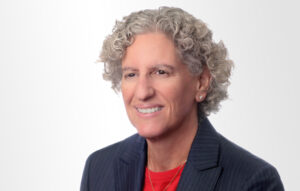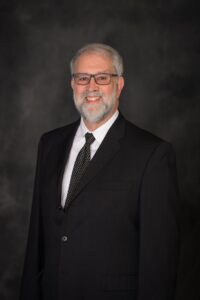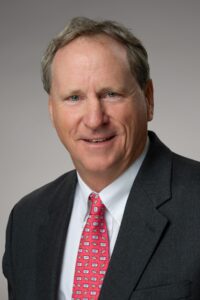|
|


Show Topic:
DEI (diversity, equity, and inclusion) programs and trainings have been increasingly coming under more scrutiny as both supporters and critics have been more vocal about the results.
In this episode, host CMA’s David Ciullo discusses with Debra Weiss Ford, Managing Partner at the Law Firm of Jackson Lewis, Workplace Diversity Programs – Doing More Harm Than Good? Listen and learn about DEI Training, the hot topic in 2023 of Reverse Discrimination, and best practices your organization can do to stay informed and make a difference.
About The Guest:
Debra Weiss Ford is office managing principal and litigation manager of the Portsmouth, New Hampshire, office of Jackson Lewis P.C. She has more than 35 years of experience representing employers in litigation matters before the state and federal courts and administrative agencies.
Debra also represents employers before the New Hampshire Commission for Human Rights, the Maine Human Rights Commission, the Equal Employment Opportunity Commission, the New Hampshire Department of Labor, and the Massachusetts Commission Against Discrimination.
Debra trains frequently in New England on issues related to employment law, including discrimination, wrongful discharge, reductions in force, termination issues, wage and hour issues, proper documentation, leaves of absence, and Title IX compliance. She regularly advises clients on employment-related matters Debra was a member of the New Hampshire Board of Bar Examiners from 1993 to 2005. She was appointed by the United States District Court for the District of New Hampshire to serve on the Merit Selection Panel to consider the reappointment of the incumbent magistrate. In 2003, she was appointed to serve on the Federal Court Advisory Committee. She is an approved federal and state mediator.


Show Topic:
The four-day work week is not a new concept, but in the last year we have seen more and more companies who are “making it work.” Additionally, we are seeing states introduce legislation that incentivizes companies to switch to four-day work week, providing state tax credits to both public and private employers who make the switch.
At the federal level, in 2023, we have seen the proposal of a bill entitled the “Thirty-Two Hour Workweek Act” which seeks to incentivize shorter workweeks by requiring overtime pay for time worked in excess of 32 hours per week.
In this episode of HR Power Hour, join co-host Tawny Alvarez in a dialogue with Biddeford Maine Mayor Alan Casavant concerning how the city of Biddeford, Maine, as a public employer, moved to a four-day work week and the tips he has for other organizations considering the same.
About The Guest:
Mayor Alan Casavant was reelected for his fifth term in November 2019. Mayor Casavant previously served 18 years on the City Council, including 4 terms as Council President. He taught Psychology, American Studies, Global Studies, and U.S. History at Biddeford High School until his retirement in 2011. Mayor Casavant served four terms in the Maine Legislature (2007-2014), serving as the Representative of Maine House District 137, which covered Biddeford and Kennebunkport. He was termed out.
As Mayor, Alan has worked to make downtown development and economic growth his priorities. The removal of the Maine Energy incinerator during his first term, has proven to be a catalyst to tremendous investment and changes in the downtown area. He is pleased and overwhelmed by the level of support he received from voters in Biddeford over the years, and promises to continue to restore confidence in city government, as well as work to develop Biddeford’s potential. “The Biddeford community is special, as it possesses so many natural assets, such as its beaches, parks, and the Saco River. Possessing good schools, magnificent downtown and mill architecture, a renowned university, and a remarkable hospital, Biddeford is well-suited to meet the needs of people in the 21st Century.”
The changes that have occurred in Biddeford over the past 6 years have been popularly called the “Biddesance”, as they reflect the dynamic emersion of the city from an old mill town into a vibrant, diverse, and emerging city of art, culture, dining, and industry.
“My objective, as Mayor, is a constant: to make the city the destination point that I knew as a child. York County is the fastest-growing county in Maine, and I see Biddeford and Saco as the drivers of the regional economy. I want to attract new residents, and shoppers and engage investors. I want the name of Biddeford to be synonymous with the cutting edge.”
“I hope that you can capture some of this creative energy. We are witnessing magnificent, unparalleled changes in our community. We are invigorated by a new pride in who we are as a people. We are enthusiastically looking towards possibilities in the hope of a better tomorrow. We are building a better community every day, by investing in our people, our infrastructure, and our businesses. Our focus is on the future and the lifestyles that it has to offer. We are no longer a mill town. We are a Renaissance city, and my intention remains to ride that wave into greater prosperity.”

 Show Topic:
Show Topic:
In an increasingly complex and chaotic world where leaders are in short supply, people of all personality types are needed to lead.
Rather than asking aspiring quiet leaders to “fake it” or pretend to be something they aren’t, the new book Quiet Leader, Loud Results provides real-world tested advice, and strategies on navigating the difficulties of having a quieter personality.
In this episode, host CMA’s David Ciullo discusses with author, Ankit Mahadevia, a quiet leader, founder, and CEO of nine biotechnology companies the triumphs and pitfalls of his own journey alongside other quiet leaders
About The Guest:
Ankit Mahadevia is the founder and CEO of Spero Therapeutics, an organization committed to fighting the threat of infectious disease through the development of novel medicines. Over his career, he has led the formation of nine companies, including Spero, several of which are trading on the Nasdaq exchange, and several others acquired by large pharmaceutical organizations.
Through these companies, he has raised over $1 billion for the development of novel therapeutics and built multiple high-performing management teams. He and the companies he built have won multiple awards for their culture, including Boston Business Journal’s “Best Places to Work” Award and Glassdoor’s “Top 50 CEOs of 2021” (#15 nationwide). Prior to these roles, Ankit advised on and supported investments in the biotechnology sector as a Venture Partner at Atlas Venture, a Cambridge, MA venture capital firm.
He held previous positions at organizations including Genentech, McKinsey & Company, the United States Government Accountability Office, and the U.S. Senate Health, Education, Labor, and Pensions Committee. He has spoken widely on entrepreneurship and leadership, including at Harvard University, Columbia University, Northwestern University, MIT, and the Berkeley Forum. Ankit received his medical degree from the Johns Hopkins University School of Medicine, an MBA from the Wharton School at the University of Pennsylvania, and a BA from Northwestern University.
He lives in Chestnut Hill, MA with his wife and two sons.

 Show Topic:
Show Topic:
On the next HR Power Hour, workplaces are comprised of a variety of people with a diverse array of personalities and skills.
While the spectrum of personalities can be vast, most employees conduct themselves in a professional manner, they understand the expectations that their position holds, and they respect authority, their fellow employees, and the company.
But what happens when an employee’s attitude and actions change? As a leader, do you and your teammates have the tools and resources to manage difficult employees with the goal of finding a solution that allows all parties to overcome the issues at hand and move towards a positive and productive work environment.
At the same time, are your team members aware of the legal pitfalls that could await if there is a misstep?
For answers to these questions and a lively discussion about managing difficult employees, join co-host Tawny Alvarez as she talks to Labor and Employment Attorney Doug Currier about managing the practical and legal risks that difficult employees can bring to the workplace.
About The Guest:
Douglas P. Currier is a Partner at Verrill. Since he began practicing law more than 30 years ago with Verrill, Doug has earned high regard in the region for his litigation skills and proactive counsel to management on employment issues such as discrimination suits and traditional labor law issues like collective bargaining agreements, union grievances, and elections.
As a member of the Verrill’s Employment & Labor Group, Doug represents companies in diverse industries such as health care, higher education, manufacturing, professional services, banking and finance, and agriculture. In the employment arena, Doug works with clients to develop workplace strategies that achieve objectives and navigate an intelligent path through complex personnel issues while maintaining compliance with the Fair Labor Standards Act (FLSA), the Americans with Disabilities Act (ADA), the National Labor Relations Act (NLRA), and other relevant laws.
He advises on issues ranging from drug testing, whistleblowers, and workplace investigations to compensation and exit strategies, succession planning, and class actions. Doug is also litigation counsel for businesses facing legal challenges arising from traditional labor issues such as union campaigns, labor arbitrations, wrongful discharge, OSHA citations, and discrimination claims.
|
|










